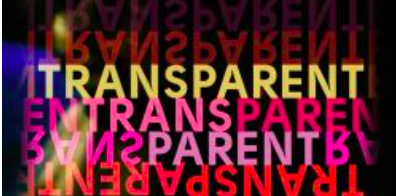Transparent: Shedding Light on the Importance of Pronouns

Transparent, a newly released series on Amazon starring Jeffrey Tambor as Maura, depicts the everyday struggles of a transgender woman. The series highlights a micro aggression that we may all overlook in our daily interactions: pronouns. Words that reinforce the standard gender binary in our society can emotionally affect those who don’t fit the quota.
But first, we must all agree on the definition of pronouns before we can analyze how they affect certain individuals.
First off, I want to emphasize that we must refer to them solely as pronouns, not “preferred gender pronouns” nor “gender pronouns” – just pronouns (there’s a distinction).
On the one hand, “preferred gender pronouns” implies that the pronouns one uses are preferred when, in fact, they are instinctual.Through adding “gender,” one excludes all those who don’t identify with either the binary or any gender. Saying “preferred” compromises the self-identification of an individual for the widely accepted gender-binary.
Hence, “gender pronouns” eliminates individuals within the LGBTQ community that identify as gender-queer, genderless, gender nonconforming, etc. Attaching gender to pronouns implies that pronouns must be affiliated with a gender.
Transparent highlights this distinction beautifully!
In the beginning of the series, Maura’s children and friends struggle to use the correct pronouns that affiliate with her now public gender identity. In Episode 6, “The Wilderness,” everyone in her family takes the initiative to understand her transition and accept her identity. Her daughter, Sarah, begins to explain to her children that Maura – “grandpa” – is now “grandma.” In fact, she has always been a grandma.
Maura’s son, Josh, seeks a transgender woman online in hopes of finding answers to his questions. Ally, the youngest of Maura’s children, enrolls in a LGBTQ course in order to better understand where her father comes from.
The positive reactions of the people around Maura show how coming out as a transgender individual doesn’t always have to be a negative experience. Transparent also provides information and answers to those close to transgendered people of the physical and emotional experiences of being transgender.
Pronouns may seem all too obvious, but many of us fail to acknowledge the weight of our words.
There are many steps you can take to prevent yourself from unconsciously offending another individual:
1. Use inclusive language.
If you aren’t sure about the pronouns someone identifies with, make sure to use inclusive language. We are lucky that English isn’t a language where gender is necessary to understand a statement – take advantage of this beautiful fact!
Use terms like, “everyone,” “y’all (you all),” “they,” and many other gender nonconforming terms. Avoid terms like, “you guys,” “dude,” and other gender-specific terms. I know that these colloquialisms continue to be widely used throughout our daily interactions, but avoiding them will make us better speakers in even casual conversations.
2. Always ask, never assume.
Many people use he/him/his or she/her/hers, whereas others may use they/their/theirs/, zi/zir/zirs, and hundreds of other pronouns. If you want to avoid offending anyone, just continue using inclusive language.
Feel free to ask the individual which pronouns they would like you to use when referring to them. Some people may give you the typical he/him/his, she/her/hers and be confused as to why you even ask, but I assure you that there will be someone who appreciates you asking.
3. Respect others’ pronouns.
If you accidentally refer to someone with pronouns that they don’t identify with, chances are that they’ll let you know. When this happens, respectfully accept what they tell you and don’t disregard their pronouns in later conversations. By doing so, you will not only be conforming to the gender-binary, but you will be denying their identity.
Many other suggestions exist, of course, but definitely keep these in mind when conversing with another individual. It’s truly amazing how everyday language can change the way one sees the world and understands the world of others
I don’t expect our society to become agender, but I do expect it to break the chains of heteronormative standards that keep us from being gender-creative.
A means of expressing our own identities whether it be genderless or gender-conforming; a means where questioning our gender is socially acceptable; a means of recognizing that not all of us fit into a specific gender mold; and above all else, a means where accepting our differences calls for a celebration of unity.




